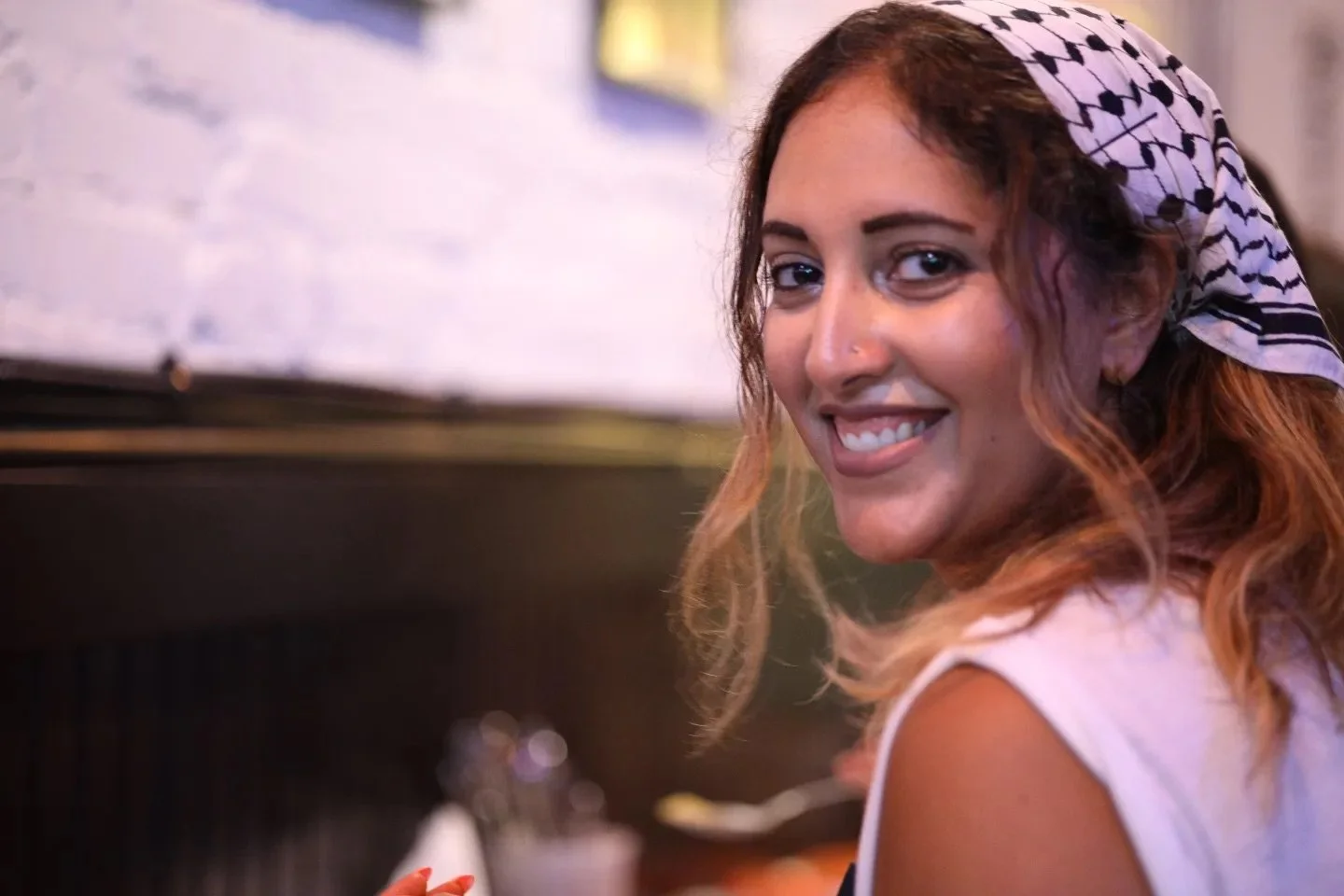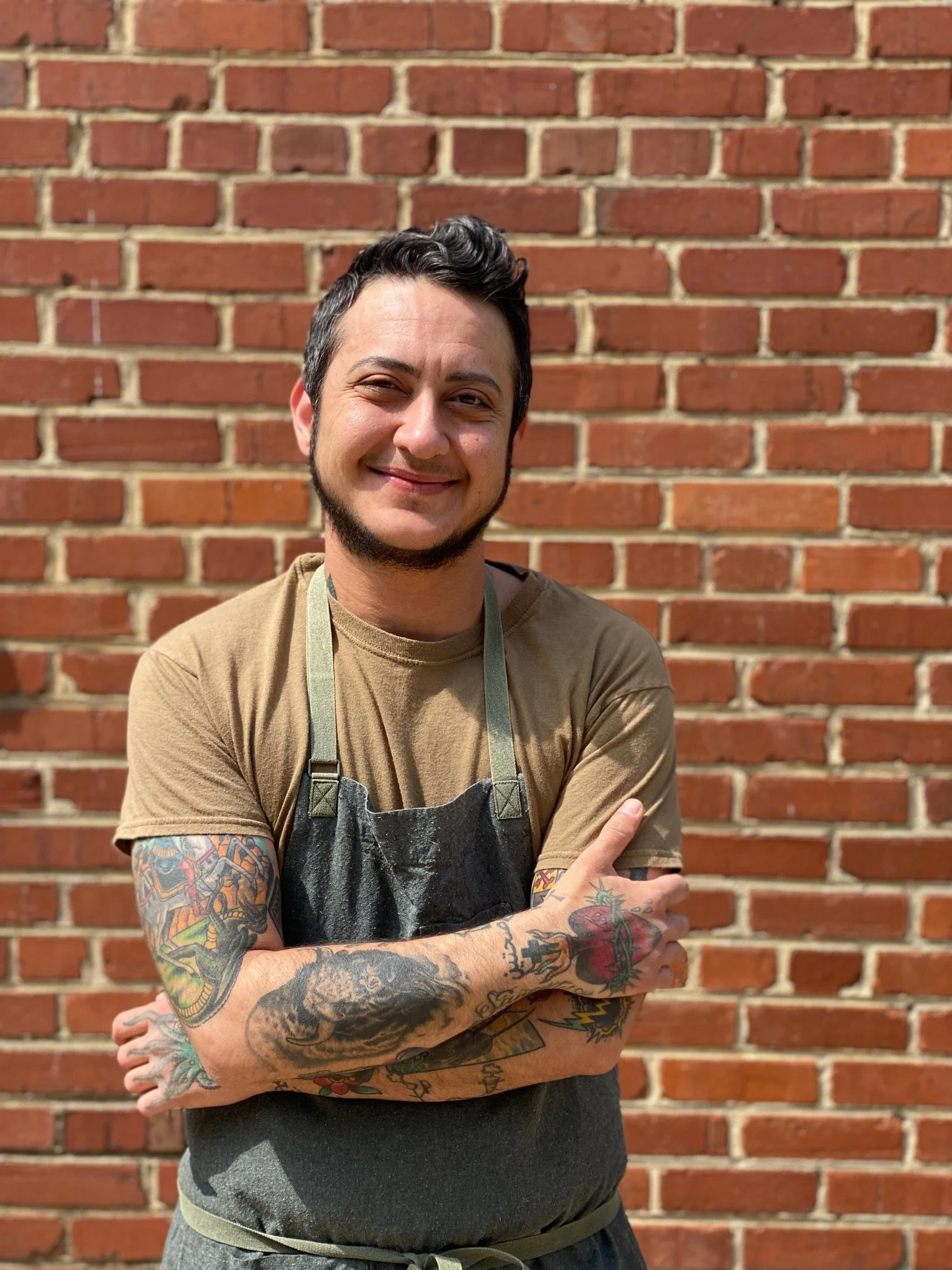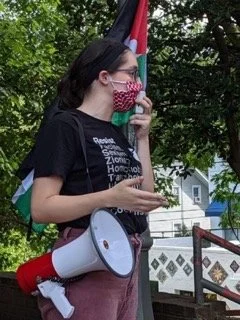Food Edition: Letter from the Editor
The following was originally published in Palestine in America’s print Food Edition. Please consider subscribing or purchasing individual individual print and or digital copies.
I never set out to be a chef.
I know it seems like a lie. My parents owned a restaurant for most of my life, and I know the ins and outs of the business. I also worked in other restaurants over the years, and I have so many friends and family in the industry. When I moved to Washington, D.C. in 2017, I started hosting dinner parties, sometimes for up to 50 people. I was never happier than when I was feeding people and seeing the joy on their faces as they took that first bite.
How do I describe what happened? The pandemic hit in March 2020, and suddenly I found myself with no one to cook for. It was heartbreaking, honestly. I get my joy of cooking from seeing people enjoy my food. Cooking for one doesn’t hold the same feeling. My friends implored me to start an Instagram page to post recipes, so I did. A lot of people were now stuck at home without a way to fend for themselves. Restaurants were shut down, so they were forced to cook. Eventually, I started holding virtual cooking classes, and when things became safer in 2021, in-person cooking classes.
In May 2021, I hosted my first public Palestinian food pop-up during Ramadan at Green Zone, D.C.’s elite Middle Eastern bar. The reception was incredible, and tickets sold out in days. I hosted the second pop-up during Ramadan in April 2022, and doubled the amount of tickets sold. That did it for me; I realized there was a need for authentic Palestinian food in the D.C. food scene. That is where the concept of Bayti — my latest pop-up concept — came from.
I knew I enjoyed feeding people, but I also knew that there was something missing from the experience. Many non-Arabs go to Arab restaurants and enjoy our food, but they don’t get the full home experience that we as Arabs grew up with. Bayti bridged that gap by bringing D.C. the true Palestinian hospitality culinary experience. The first event launched on August 7, 2022, and it was a huge success. I plan to host them every couple of months to be able to give as many people as possible the true Palestinian culinary experience.
Being the guest food editor for this issue has been the most incredible experience. As an activist that works on Palestine, it was such an honor to interview some of the most renowned chefs in our community. I learned so much about our diaspora chefs — how they started cooking, why they decided to call their food Palestinian vs. just Arab, their challanges and their successes. We are not a monolith; our experiences vary even in the culinary world. As Palestinians, our food is part of our resistance. We have suffered from erasure and appropriation of our food for too long. The way to reclaim it is simply by calling it what it is — Palestinian food.
I never set out to be a chef, but it found me. I have been able to blend my activism and passion for food to bring the community around me the most beautiful parts of my heritage. I am beyond blessed to have the opportunity to honor the sacrifices my family made, and to bring you all this issue so that you can get to know some of the most talented Palestinian chefs in America. Our food is at the heart of our existence, and the path to liberation for all Palestinians is to continue to honor our struggle and celebrate the best parts of us.




